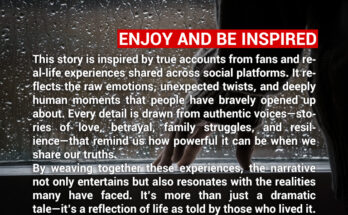I never imagined a meme could land me in trouble. My social media was private—or so I thought. After a long day, I’d post harmless vents like “Ugh, my boss dumped last-minute work on me again.” No names, no specifics, just relatable office gripes. It felt like a safe outlet, a digital sigh among friends. But one day, everything changed. A coworker saw my posts, took screenshots, and sent them to HR. I was blindsided. My heart raced as I got the email: “Please come in for a meeting.” I knew something was seriously wrong.
The HR meeting was tense. I sat across from them, palms sweating, trying to explain myself. They didn’t fire me, but they made two things clear. First, they were opening an investigation into my boss’s behavior—apparently, I wasn’t the only one venting online. Second, I had to stop posting anything that even hinted at company business. I nodded, stunned. My posts had triggered something bigger than I expected. I walked out feeling both relieved and rattled. The line between personal and professional had just blurred in a way I couldn’t ignore.
Now, every time I walk into the office, my boss glares at me like I betrayed him. My coworker—the one who snitched—avoids eye contact completely. The atmosphere is thick with tension. I used to feel invisible at work, but now I’m hyper-visible, and not in a good way. I’ve stopped posting altogether. Even memes feel risky. I’ve learned that “private” online spaces aren’t really private. Screenshots live forever. And once they’re out there, you can’t control the narrative. It’s a lesson I won’t forget.
I used to think social media was my personal space. A place to laugh, vent, and share without consequence. But now I see it differently. It’s like a second résumé—one that your employer can read without permission. I didn’t post hate speech or company secrets. Just frustration. But even that was enough to trigger HR. I’ve started asking myself before every post: “Would I be okay if my boss saw this tomorrow?” If the answer isn’t a hard yes, I don’t post it. It’s not worth the risk.
The irony is, my posts might have helped others. HR said I wasn’t the only one complaining about my boss. Maybe my memes gave someone else the courage to speak up. Maybe they exposed a pattern. But I’ll never know for sure. What I do know is that I’ve become a cautionary tale. My coworkers whisper when I pass. Some support me silently. Others keep their distance. I’ve become the person who proved that online venting can have real-world consequences.
I’ve started keeping a journal instead. It’s old-school, but it’s safe. No screenshots, no snitches. Just me and my thoughts. I still need to vent, but now I do it offline. I’ve also joined a support group for people dealing with toxic workplaces. It helps to know I’m not alone. We share stories, advice, and sometimes even laugh about the absurdity of it all. It’s healing. And it reminds me that while social media can be risky, human connection is still possible—just in safer spaces.
Looking back, I wish I’d been more careful. Not because I regret what I said, but because I underestimated how far it could go. I thought I was venting into the void. Instead, I was shouting into a megaphone. My coworker’s betrayal still stings, but it taught me something valuable: trust is earned, not assumed. And privacy online is an illusion. I’ve changed how I use social media, how I interact at work, and how I protect my peace. It’s been painful, but it’s also been transformative.
So here I am, a little wiser, a little warier. I still believe in speaking up, but now I do it with intention. I’ve learned to separate my personal life from my professional one—not just in theory, but in practice. My story isn’t unique, but it’s real. And if it helps someone else think twice before posting, then maybe it was worth it. Just remember: one screenshot can change everything. Protect your peace. And never assume your “private” posts are truly private.


